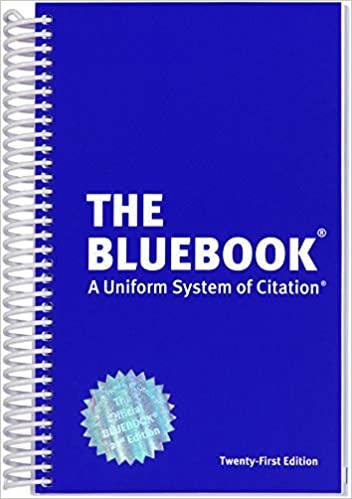Question
Megan Saunders is a consultant for IT companies. Thanks to a feature article in a popular trade magazine, she was inundated with requests for her
Megan Saunders is a consultant for IT companies. Thanks to a feature article in a popular trade magazine, she was inundated with requests for her coding services. As a result, Megan decided to move out of state to work on a year-long project for an upstart tech company. At the end of the project, Megan expected to return home and earn a bonus in excess of $100,000 for her work. However, when the time came for her bonus payout, the tech company fired Megan without cause and refused to pay the bonus. Megan has since moved back home. She is not sure how to go about getting her bonus pay. She has thought about filing a lawsuit, although she realizes that the process can be lengthy and expensive. Megan wants to know: How can she start the litigation process? Are there alternatives to litigation?
Briefly, the civil litigation process involves filing acomplaint, which details the basis for the lawsuit. The tech company will be served with the complaint and asummons, which is an order to answer the complaint within a certain period of time. In its answer to the complaint, the tech company will admit or deny allegations outlined in the complaint. The tech company can also file acounterclaimagainst Megan, for which she would have to file a formal response called areply.
As you can see, the litigation process can be quite involved. It can be costly in terms of the time and money spent litigating a dispute. For this reason, the majority of cases are settled out of court through mediation or arbitration. Inmediation, a neutral third party helps parties reach a compromise. Inarbitration, a third party decides how to resolve the dispute between the parties. Because of its efficiency in resolving disputes, Megan should definitely consider either mediation or arbitration as an option.
Mediation is a form of alternative dispute resolution in which a neutral third party helps individuals resolve a dispute. Because the parties are encouraged to develop their own resolution of the conflict, they have more of a vested interest in the outcome and are more likely to abide by the terms of the agreement.
Unlike mediation, arbitration is a quasi-judicial proceeding in which a neutral third party decides how to resolve the conflict. Arbitrations can be binding or non-binding, by agreement of the parties involved.
Argue whether a court system should require alternative dispute resolution before a plaintiff is allowed to pursue his or her lawsuit in court (that is to say, before a plaintiff is allowed to take his or her case to trial).
- If you favor a requirement of alternative dispute resolution, indicate in your paper which of the two primary forms of alternative dispute resolution (arbitration or mediation) the court system should require, and why.
- If you do not support mandated alternative dispute resolution, explain why.
Step by Step Solution
There are 3 Steps involved in it
Step: 1

Get Instant Access to Expert-Tailored Solutions
See step-by-step solutions with expert insights and AI powered tools for academic success
Step: 2

Step: 3

Ace Your Homework with AI
Get the answers you need in no time with our AI-driven, step-by-step assistance
Get Started


